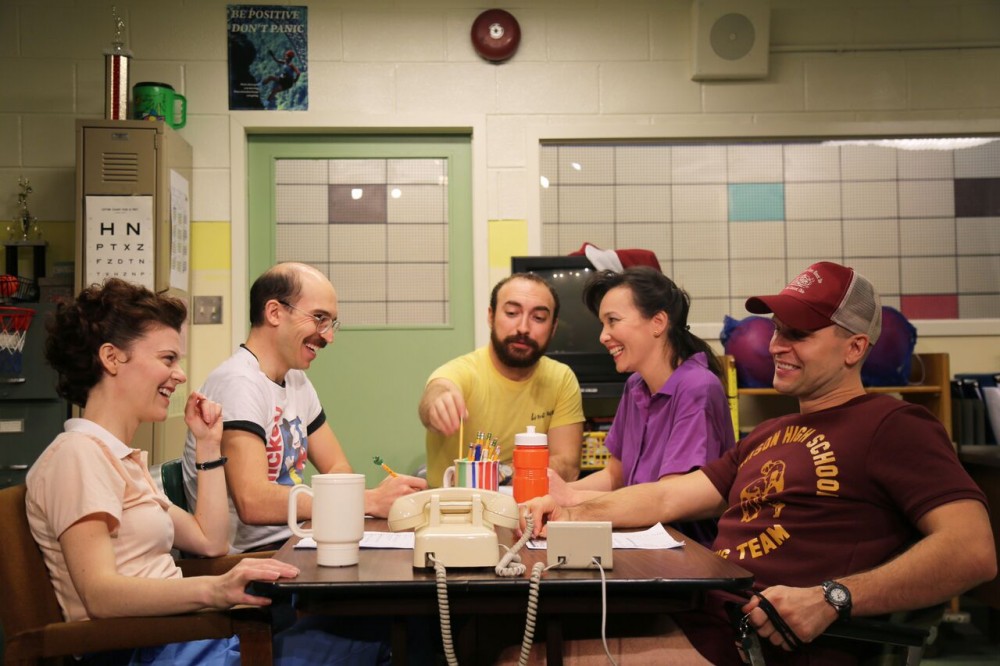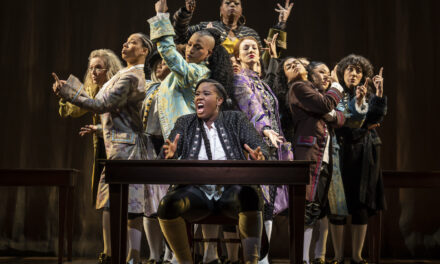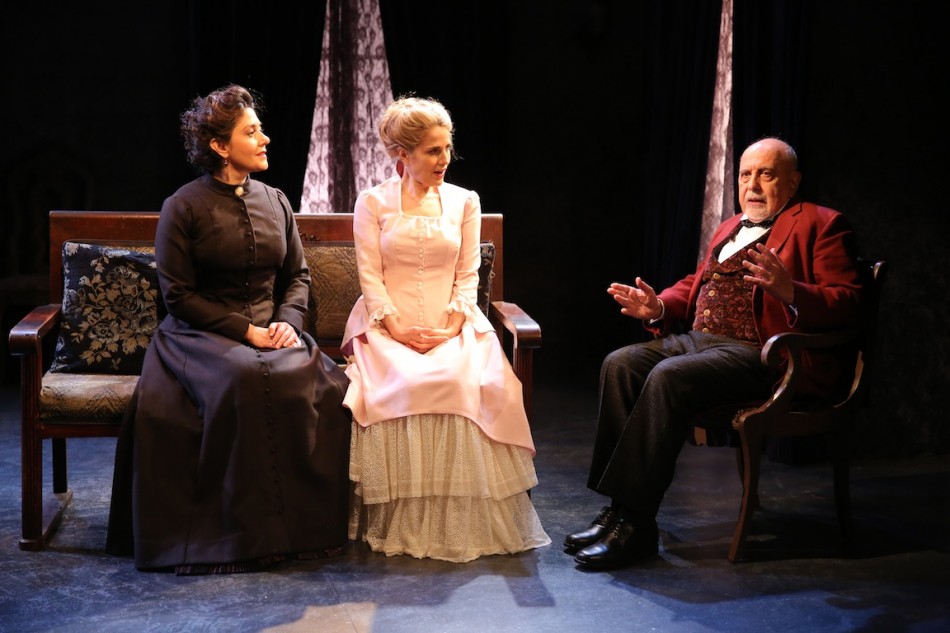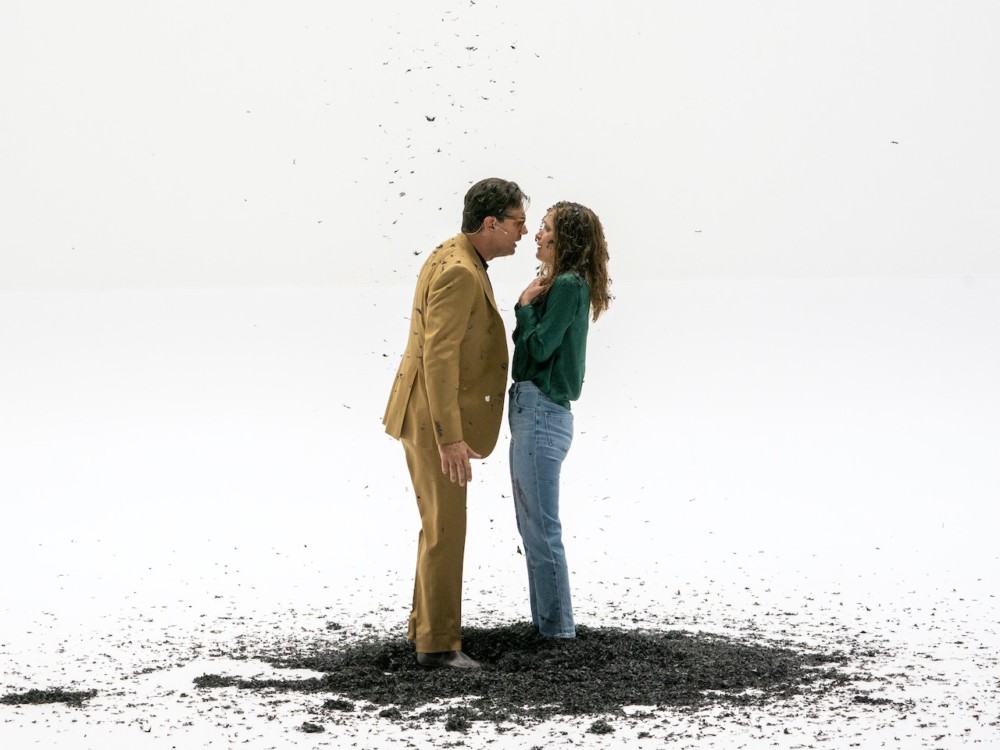
Bobby Cannavale and Rose Byrne in Medea at BAM.
By Carol Rocamora
Astonishing. Absolutely astonishing. Those are the words that best describes Simon Stone’s mind-blowing, jaw-dropping, 80-minute adaptation of Medea, the 431 BC classic by Euripides.
Rarely, if ever, have I seen the brilliant vision of an artist— in this case, adaptor/director Stone— marshaling all the formidable forces of the theatre (actors, script, scenic elements) into an artistic explosion of such atomic intensity and fury. It will take me a long time to recover from its brutal fall-out.
Recent productions of Medea (Diana Rigg, 1992; Fiona Shaw, 2002; Annette Bening, 2009; Helen McCrory, 2014) are set in generic, “neutral” settings with varying classical and modern touches. But Stone reimagines Euripides’s seminal story of the demi-goddess Medea betrayed by her husband Jason and blasts it into the present and beyond— with a tsunami force that knocks you over.
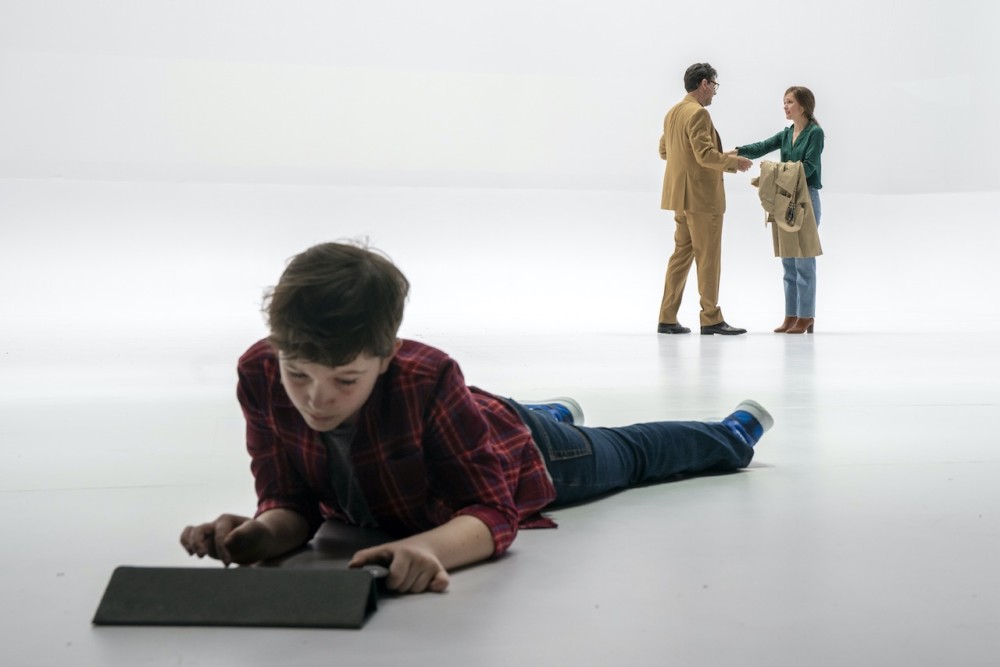

Gabriel Amoroso (foreground), with Bobby Cannavale and Rose Byrne in Medea at BAM.
You walk into the Harvey Theater at BAM to behold an empty stage painted blinding white, cavernous, leading nowhere. It’s a frightening, futuristic void— signaling that a terrible, timeless story is about to unfold. Onstage during pre-show are two young boys (Gabriel Amoroso and Emeka Guindo) lying on the floor and leaning against a white wall— engrossed in their iPads and phones. Enter their young, attractive parents— Lucas (Bobby Cannavale) and Anna (Rose Byrne)— and the awful story unfolds. Anne has just been discharged from a mental hospital (we ultimately learn) for attempting to kill her husband, who has been having an affair with her boss’s daughter.
It gets worse— much worse. Anna is a distinguished doctor/researcher who is losing her prestigious job because of her precarious mental state. Meanwhile Lucas, her husband, an underling whom she helped to promote in her research unit, has soared past her in status. He now wants to divorce Anna and marry the much-younger Carla (Madeline Weinstein), daughter of the laboratory director Christopher (Dylan Baker). Anna is ferociously determined to win her husband back— but when Lucas declares he’s moving to China with Carla and the kids to take a new job, she plans her horrific, unimaginable revenge. (You know how the myth ends— with an added twist provided by Stone.)
To intensify this dreadful story, video cameras are used to capture Anna’s face and project her vivid expressions— alternatingly tortured, loving, pleading, fearful— on a giant screen over the stage (video design by Julia Frey).
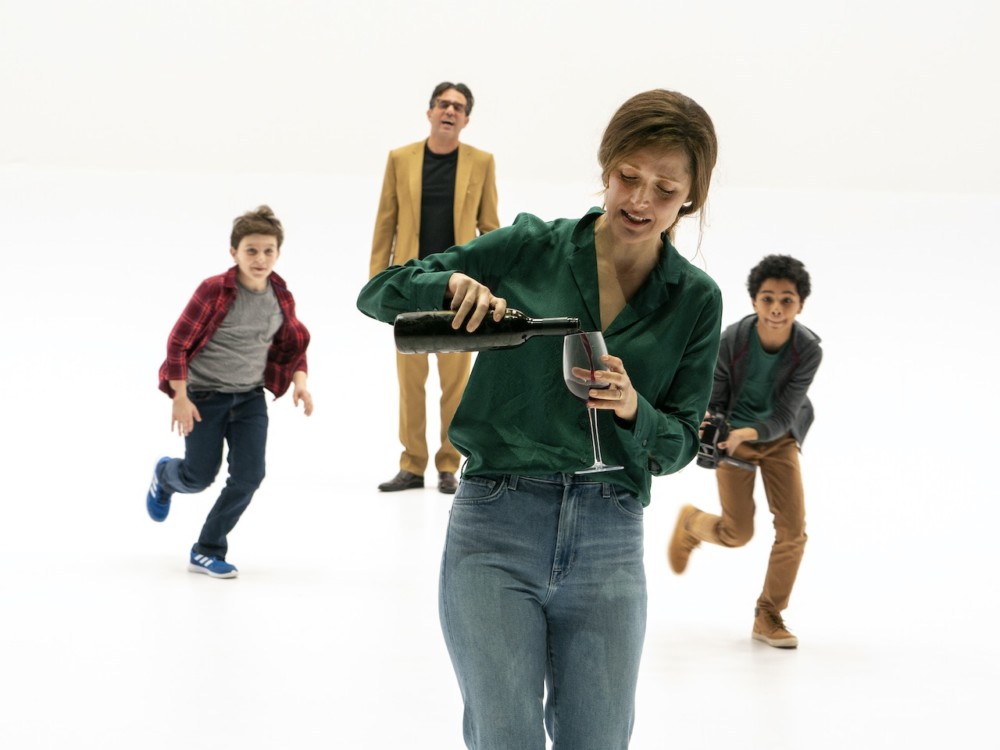

Rose Byrne (foreground), with (L to R) Gabriel Amoroso, Bobby Cannavale, and Emeka Guindo in Medea at BAM.
The effect is overpowering. The kids also video their parents in bed, engaged in their farewell lovemaking. It’s projected on the overhead screen as well, and it’s unbearably painful to watch.
As Anna, Rose gives an extraordinary performance of range and power— a modern-day everywoman whose life has gone terribly, irrevocably wrong. As Lucas, Bobby Cannavale (Byrne’s offstage life partner) succeeds in evoking as much compassion as can be mustered in his thankless role.
Stone has distinguished himself as an adaptor/director of astonishing power, passion, and skill (remember his riveting adaptation of Yerma two seasons ago at the Park Avenue Armory, about another self-destructive woman). In Medea, together with his marvelous design team (Bob Cousins, set; An D’Huys, costumes; Sarah Johnston, lighting, Stefan Gregory, music/sound), Stone offers indelible images, using the primal elements of blood, ashes and fire, vivid against the screaming white.
Truly, this production is a work of art. Thanks to a theatre visionary like Stone, an ancient story is reimagined once again in all its terrible, towering tragedy. A family in a pile of ashes is an image you’ll never forget.
Photos: Richard Termine
Medea
Adapted and directed by Simon Stone
At the Harvey Theater, Brooklyn Academy of Music,
Through February 23.



